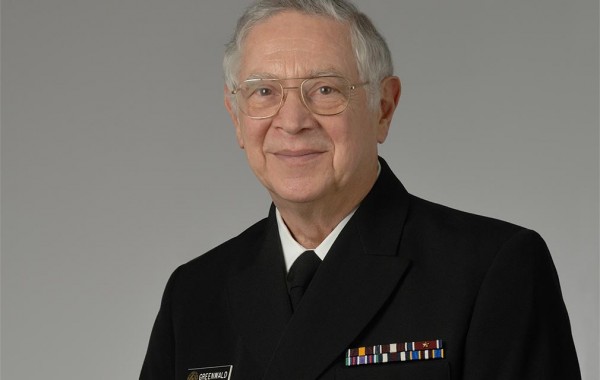
Dr. Peter Greenwald ’57
Dr. Peter Greenwald ’57 has changed the way America fights cancer, but his career-long fascination with the power of preventive medicine began far from home — halfway around the world, in fact, in the Pacific island kingdom of Tonga.
He traveled there in the early 1960s as a young medical school graduate and member of the U.S. Public Health Service. While he and his colleagues injected the island children with a new version of the smallpox vaccine, they entertained them with a film projector they’d brought because the kids had never seen movies before. Tests of the freeze-dried, easily transportable vaccine were successful, and the work of Greenwald’s team provided key information for the World Health Organization’s smallpox eradication campaign of the late 1960s.
“It was the first time a disease was completely eradicated from the world,” he said. “Many thousands of people a year had been dying from smallpox. That certainly convinced me about the usefulness of public health.”
Returning to the United States and completing his uniformed service, Greenwald decided to pursue a career in public health, beginning a doctorate at Harvard. He would focus on a disease for which, unfortunately, no simple vaccine exists: cancer.
Cancer can be prevented — not all the time, and not with any guarantees for specific individuals, but to such a significant degree that we’re foolish to ignore the science, Greenwald said. “There are spontaneous mutations. But there is a portion of it, thirty to sixty percent, that is preventable, and you can lower your risk.”
As director of the Division of Cancer Prevention at the National Cancer Institute (NCI), from the establishment of the office in 1981 until his retirement in 2011, Greenwald has been at the forefront of setting a national agenda for cancer prevention. In that role, he allocated an annual budget of more than $300 million for projects in biomarker research, drug and vaccine development, early detection, food and lifestyle research, and consumer education. Since his retirement from the directorship of the Division for Cancer Prevention, Greenwald has stayed on at the NCI as associate director for prevention.
Greenwald’s list of projects at the NCI is an encyclopedia of the last 35 years of cancer prevention. Some of his personal favorites include trials of low-toxicity drugs that cut breast cancer rates in high-risk women by 50 percent and prostate cancer rates in men by 25 percent; the “5 a Day” public outreach program that encouraged supermarket shoppers to buy and eat fruits and vegetables; the formation of the National Black Leadership Initiative on Cancer; and a study that showed how certain kinds of hormone therapy increase the risk of breast cancer in women.
For his extensive work with breast cancer, Greenwald received the 2014 Jill Rose Award from the Breast Cancer Research Foundation. He is characteristically humble about the honor, saying: “I took it as giving credit to the field of prevention.”
Greenwald is more vocally proud of his family’s accomplishments. After graduating from Colgate, his daughter Rebecca ’91 went on to earn a PhD in immunology from Harvard, then joined the faculty there. She, her children, and her husband (also a doctor) now live in Madison, Wis. “I was the first one in my family to be a doctor, but now there are many,” Greenwald said with a laugh.
— Mike Agresta






